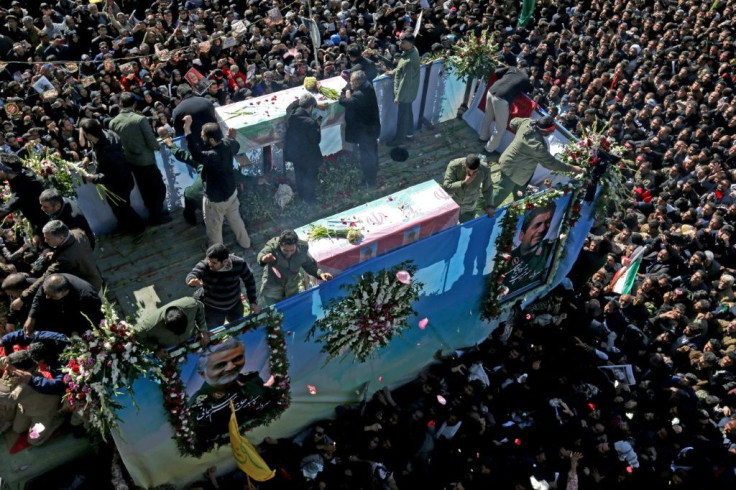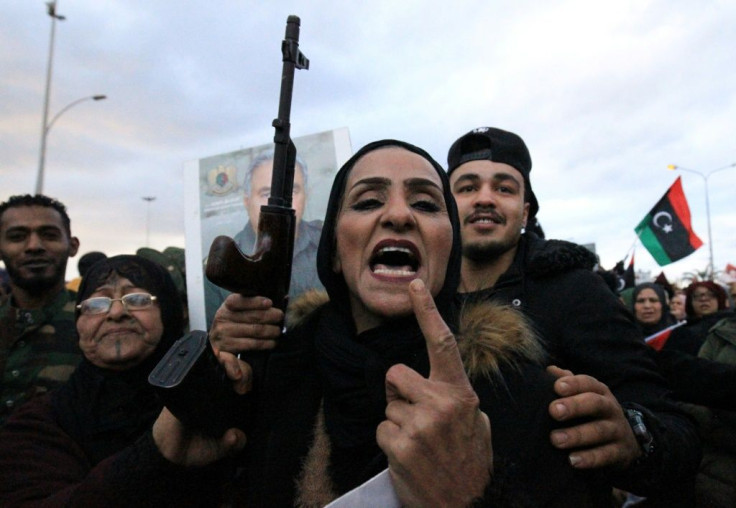Europe Warns Turkey Over Libya Intervention

Four leading European powers on Tuesday condemned Turkey for deploying troops to Libya on the weekend, in a sign of rising tensions with Ankara.
Britain, France, Germany and Italy put out a statement calling for an end to fighting and "continuing outside interference" following emergency talks in Brussels.
Europe is scrambling to respond to two escalating crises -- Libya and Iran, which has threatened revenge for the US killing of Qasem Soleimani, one of its top generals.
EU diplomatic chief Josep Borrell criticised Turkey by name over its Libya intervention, telling reporters: "We asked for a ceasefire and we asked also to stop escalation and to external interference, which has been increasing in the past days.
"It is obvious that this makes a reference to the Turkish decision to intervene with their troops in Libya which is something that we reject and which increases our worries about the situation in Libya."
Turkey said on Sunday that its troops had begun deploying to support the UN-recognised Government of National Accord (GNA) -- which is battling a number of militant groups.
Libyan strongman Khalifa Haftar -- who receives backing from the United Arab Emirates and Egypt in his bid to overthrow the GNA -- seized the coastal city of Sirte on Monday.
"The EU is of the firm conviction that there is no military solution to the Libyan crisis and that a protracted conflict will only bring more misery to ordinary people," the ministers said in their joint statement.
"Continuing outside interference is fuelling the crisis. The more the Libyan warring parties rely on foreign military assistance, the more they give external actors undue influence on sovereign Libyan decisions, to the detriment of the country's national interests and of regional stability."
The European criticism follows a blunt warning from US President Donald Trump to his Turkish counterpart Recep Tayyip Erdogan at the weekend not to interfere in the conflict.
The oil-rich North African country has been in turmoil since the 2011 NATO-backed uprising that killed longtime leader Moamer Kadhafi.

The Libya talks were followed by a meeting on Iran between Britain, France and Germany -- the three are parties to a 2015 nuclear deal that saw Tehran agree to limit its nuclear ambitions in return for easing of sanctions.
Iran announced on Sunday that it would no longer follow some of its commitments under the deal, which has been unravelling since US President Donald Trump withdrew in May 2018.
The Europeans are mulling whether to trigger the deal's dispute resolution mechanism, which could lead to the UN Security Council voting on whether to reimpose sanctions on Iran.
German Foreign Minister Heiko Maas indicated patience with Tehran is wearing thin.
"We still believe that this is an important agreement that will prevent Iran from coming into possession of a nuclear bomb," he said.
"But we will not be able to take note of announcements with a shrug of our shoulders that the commitments in Tehran will no longer be met."
An EU diplomat told AFP that ministers held a "trustful exchange of views" and were committed to "a closely coordinated approach to upcoming contacts in order to contribute to a de-escalation".
French Foreign Minister Jean-Yves Le Drian said a decision would be made in the coming days on whether to trigger the mechanism.
The EU has called an extraordinary meeting of foreign ministers on Friday to discuss the nuclear deal and the possible repercussions from the killing of Soleimani -- the key player in Iran's network of alliances and proxy groups around the Middle East.
The US operation took Washington's allies by surprise and NATO held an urgent meeting of its ruling council on Monday to hear from American officials and discuss the future of the alliance's training mission in Iraq.
Foreign policy chief Josep Borrell has invited Iranian Foreign Minister Mohammad Javad Zarif to Brussels for talks, but it is not clear when he might come -- or if he will come at all.
Soleimani's death continued to reverberate in Iraq, where NATO is removing some of its personnel because of increased security threats.
The alliance has suspended its 500-strong Iraq training mission but insists it remains committed to the fight against jihadists from the Islamic State group.
© Copyright AFP 2024. All rights reserved.





















